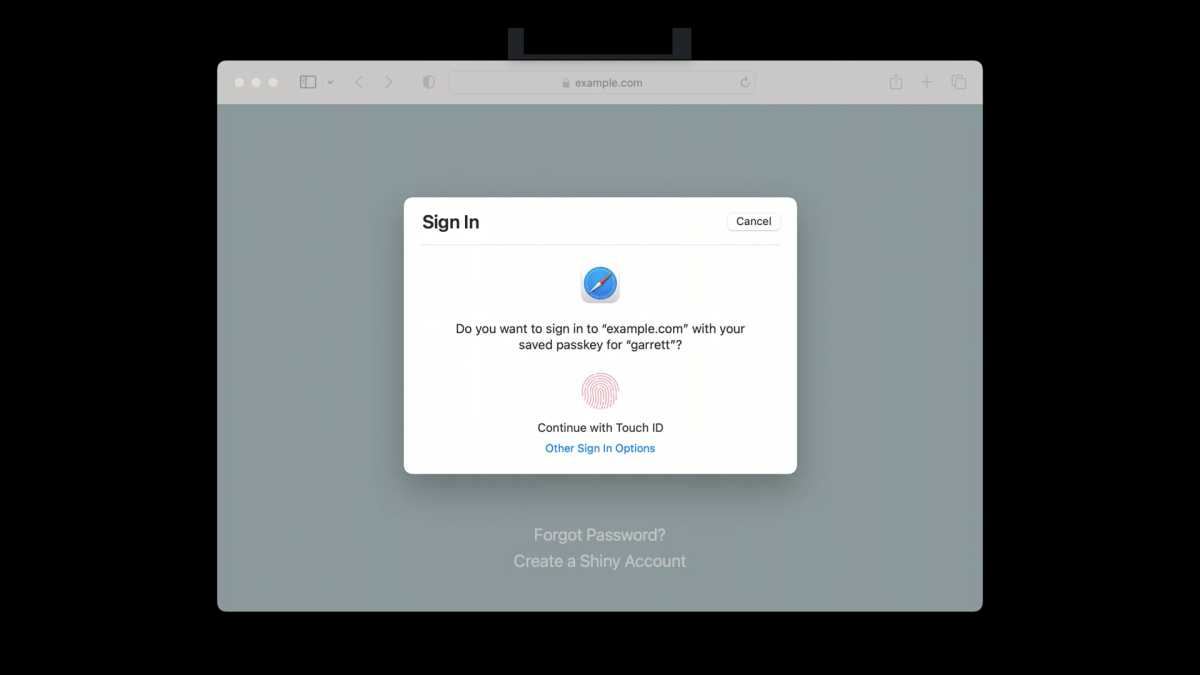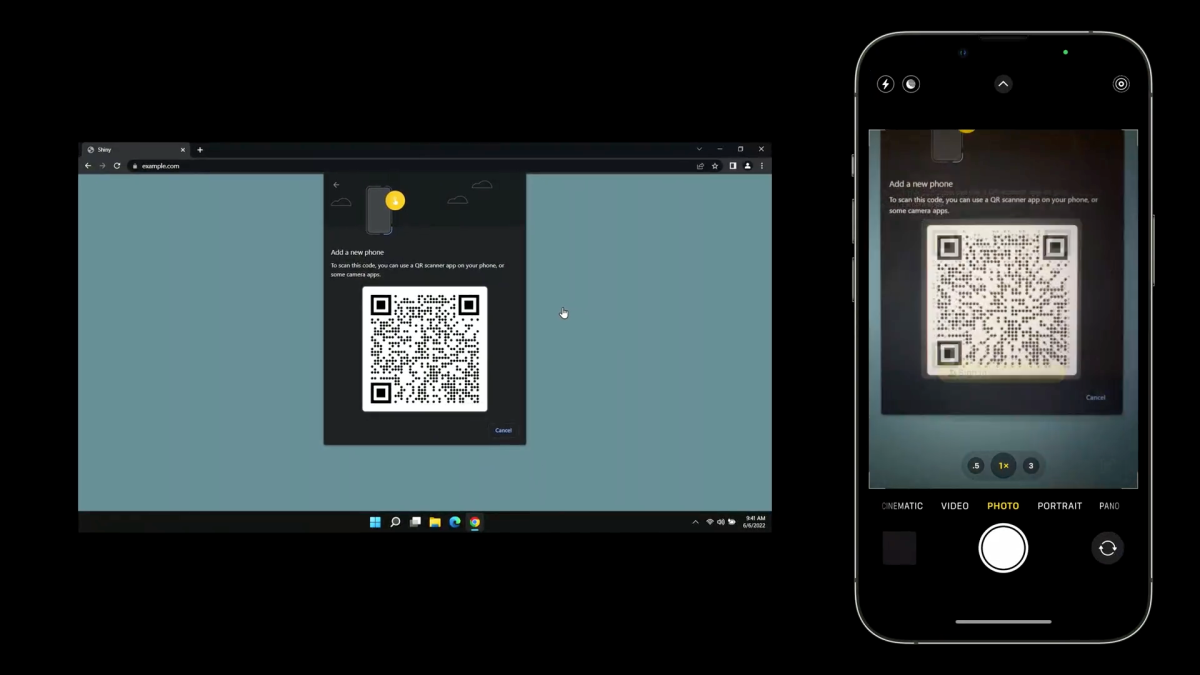iOS 16 has plenty of exciting features for users to look forward to, from customisable lock screens to improved notification systems, the ability to unsend messages and much more – but there’s one pretty important feature announcement you probably missed at WWDC in June.
With the public release of iOS 16, largely expected to take place in mid-September following the reveal of the upcoming iPhone 14, Apple is set to introduce technology that’ll make passwords obsolete.
The idea is simple. Rather than logging into an app or website using a password, you’ll instead be asked for a Passkey. It’s essentially a digital key stored on your iPhone, iPad, or Mac, authenticated using either Face ID or Touch ID depending on the device you’re using, with digital keys synced between your Apple devices using iCloud Keychain.
It’s about convenience as much as technology, with Apple’s senior director of platform product marketing, Kurt Knight, explaining in an August 2022 interview that “Face ID and Touch ID verification give you the convenience and biometrics we can achieve with an iPhone. You don’t have to buy another device, but also you don’t even have to learn a new habit”.
Admittedly, that doesn’t sound too different from using a password manager with Face ID authentication enabled, but here’s where it gets interesting. The digital keys created are only kept on your devices, and they can’t be read by anyone – not even Apple itself.

Apple
That goes a very long way when it comes to data breaches, hacks, and phishing attacks with the aim of getting access to user accounts, as there’s no ‘password’ to steal. If all goes to plan, it could be the end of the list of increasingly complex passwords you need to remember on a daily basis.
But while the technology will be available on devices running iOS 16, iPadOS 16, and macOS Ventura, don’t expect all your passwords to disappear at once.
As with the company’s ‘Sign in with Apple’ functionality that speeds up the sign-up and sign-in process of supported apps, it’s down to developers to add the functionality to their apps and websites.
It’ll likely be available with first-party services like App Store verification, but it’ll take longer to trickle down to apps like Facebook, TikTok, and Instagram. Just how long is yet to be seen.
There are also questions about how it’ll work when signing into an app or site on an Android or Windows device.
“The cross-platform experience is super easy,” Knight told Tom’s Guide. “So, say you’re someone who has an iPhone, but you want to go and log in on a windows machine. You’ll be able to get to a QR code that you will then just scan with your iPhone and then be able to use Face ID or Touch ID on your phone.”

Apple
It’s worth noting that Google and Microsoft have also been working on competing password-less technology in recent years, but it seems Apple is the first out of the gate.
Will you switch to Apple’s Passkey technology? Or will you wait to see what Google and Microsoft have to offer? Let us know on Twitter.




